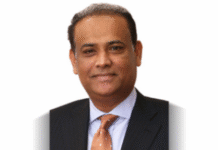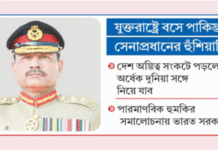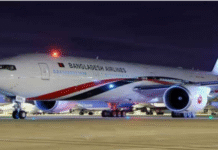
The number of students adopting unfair means like copying and helping each other in public examinations is increasing, causing alarms among education board officials.
According to inter-education board coordination subcommittee data, 976 students were expelled during Higher Secondary Certificate and equivalent exams held under eight general, one madrassah and one technical education boards in 2017.
The number of expelled students was 831 in 2013, 762 in 2014, 810 in 2015 and 792 in 2016, board officials said.
During Secondary School Certificate and equivalent exams held under 10 boards in 2017, a total of 1,143 students were expelled while the number was 692 in 2013, 712 in 2014, 874 in 2015 and 811 in 2016, they added.
This grim picture turns up, with education ministry officials boast of having been holding public exams free of unfair means.
About the figures mentioned above, board officials say this is just the tip of iceberg as cheating in examinations is still widespread and only a few are expelled while a good many go unpunished.
Former Dhaka education board chairman Fahima Khatun said that it was really dangerous that examinees taking public exam after class V and VIII were developing habit of taking unethical practices like adopting unfair means in exams as ‘many parents and teachers were helping them do so’.
In JSC, HSC and HSC exams, many students were expelled as they brought small-sized xerox copy of possible questions into the examination centres despite tight security or were found to pass on answers to fellows during the exams.
‘Students are leaning towards copying as they in many cases do not get proper education in classroom,’ said Fahima Khatun, also former director general of Directorate of Secondary and Higher Education.
‘Some dishonest teachers also help their students in copying in order to ensure an increased pass rate for their schools in public exams,’ she said, expressing her alarm.
‘Some greedy guardians who blindly run after better grades are also on the list of helpers of copying,’ Fahima added.
Three college teachers and a student were arrested and jailed by mobile courts after they were caught while supplying answers to questions of biology first paper to HSC examinees on mobile phones in Dhaka and Patuakhali on April 12 this year.
Another mobile court awarded jail to three school teachers as they were found helping SSC examinees in physical education paper at Sarada Sundari Girls High School exam centre in Faridpur in February.
Current DSHE director general SM Wahiduzzman, however, claimed that copying in public exam decreases significantly.
‘There are allegations that a quarter of teachers is helping the unfair means at exam halls and we are taking action against them,’ he said.
‘It is really unfortunate that some teachers are engaged in leaking question just prior to the exam,’ he said.
For the rise in such malpractice, board officials have blamed too many public examinations.
The future of the students — enrolment in next level of education and getting jobs — largely depends on the success in these exams, so many students take to unfair means at exams, they say, explaining.
Students now have to take four public exams — Primary Education Completion Examination after class V, Junior School Certificate after class VIII, Secondary School Certificate after class X and Higher Secondary Certificate after class XII.
Current and former board officials have also blamed unhealthy competition between schools for these malpractices as schools’ reputation and promotion depend on students’ success in public examinations.
So, school administrators and teachers have been found to have written answers on the blackboard for helping their students during the exams.
A study by Campaign for Popular Education, titled ‘Whither grade V examination? An Assessment of Primary Education Completion Examination in Bangladesh’, published in late August 2015, says that in the examination hall, support was available for those students who needed it at exam.
‘Invigilators carried mobile phones in examination halls and received answers through short message service (SMS) from outside,’ it says.
‘They supplied the answers orally or by writing them on blackboards and created opportunity for copying and watching other’s answer scripts. Examinees who did not require any help themselves shared answer scripts with peers. A chaotic situation prevailed during the final 40 minutes to one hour of examination time, when many examinees scrambled to check and copy answers from each other,’ the study says.
Source: New Age









